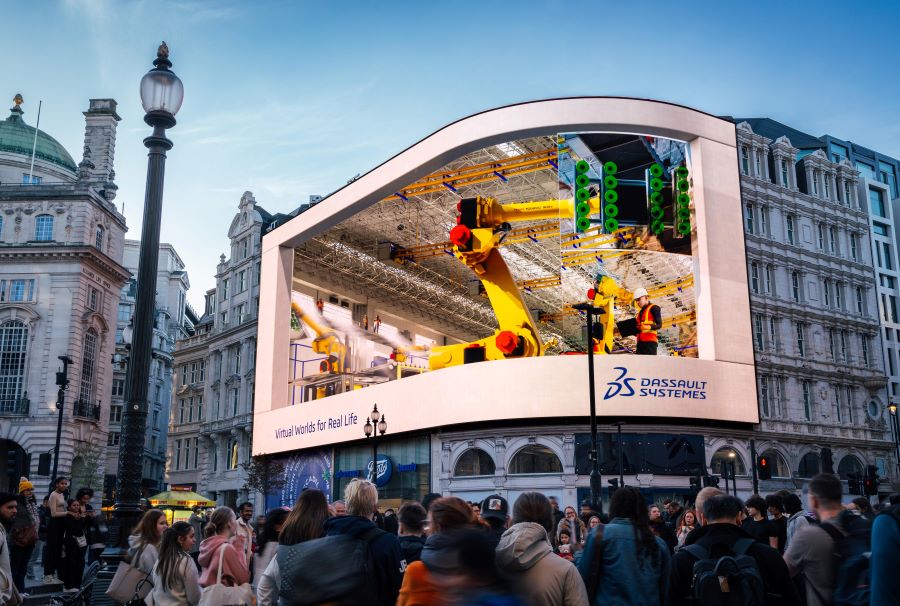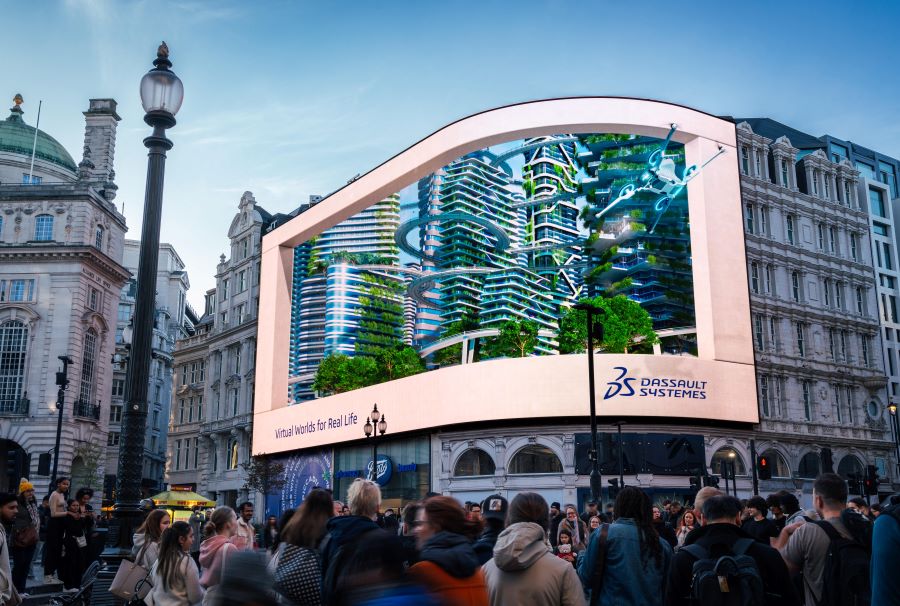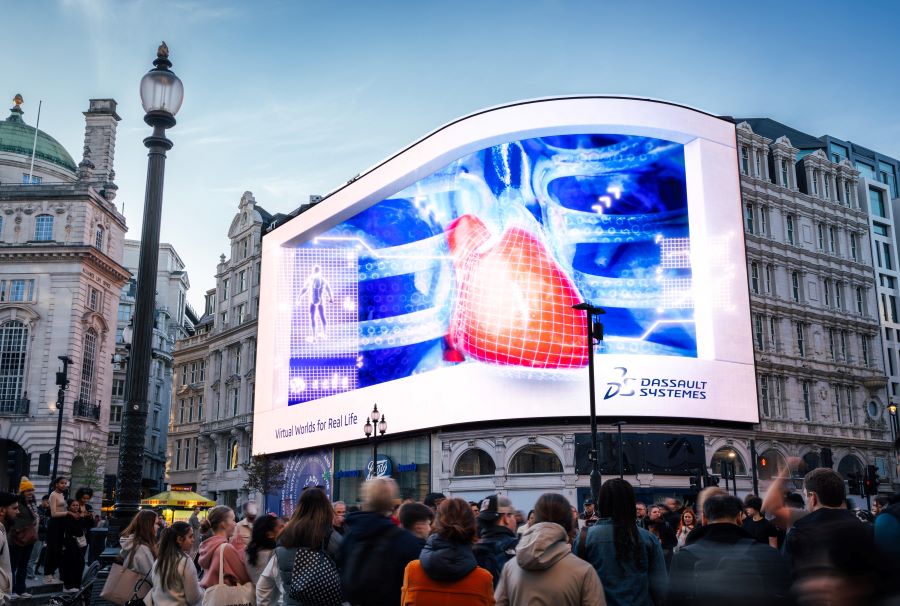What’s the quickest, most sustainable and least expensive way to break something and learn from it? You don’t break it. Not for real, anyway.
More and more, designers, architects, engineers and innovators from across industries are making science-based digital replicas known as virtual twins a key component of how they create, test, iterate and operate their products and processes.
Virtual twin experiences start with designing a 3D model that represents the shape, dimensions and properties of a physical product or system. Then, you run simulations on the virtual model to explore how the product will behave when it’s assembled, operated or subjected to a range of events. The testing helps optimize and validate the design, materials and production processes – all before you build, let alone break, a physical prototype.
This week in London, millions of people will have the chance to see examples of virtual twins as scientifically accurate organs, rescue roadsters, robotic arms and astronauts are on display in a digital out-of-home (DOOH) media campaign running from April 28 to May 5 at Piccadilly Lights.
The breathtaking 3D sequence reinforces the idea that wherever you are, Dassault Systèmes is there with you. Those who see the display live are also invited to use an augmented reality app on their smartphones to see how Picadilly Circus could look in a more sustainable future.
Virtual worlds for real life
Imagine a factory. Machines, production lines, equipment, people – all of these elements can be modeled and simulated in a virtual factory software. Using real-world data, you can simulate and compare realistic scenarios to understand, plan and improve everything from manufacturing processes to predictive maintenance to industrial ergonomics software for workers.

For decades, automakers and OEMs from the aerospace industry have been using Dassault Systèmes’ factory virtual twins to optimize manufacturing processes. In recent years, companies have used virtual twins to keep up with consumers’ constant demand for more personalized products and experiences. They’ve even used computational fluid dynamics to figure out how to safely re-open their cafeterias during the COVID-19 pandemic.
Now picture a city. From public infrastructure to public policy, from architecture to education – officials, organizations and contractors are using virtual twin experiences to serve the needs of society amid mounting pressure from urbanization, climate change and sovereignty concerns. Forward thinking cities are becoming smarter by feeding data from sensors into virtual twins to inform precise planning and development. They’re understanding better everything from water and energy systems to traffic patterns and mobility solutions.

As policies across Europe increasingly push data centers underground, a Swiss design and build contractor has plans to use virtual twins for maintenance and lifecycle management of its underground caverns. A recent campaign used virtual twin experiences to reimagine the iconic Eiffel Tower if it were to be built today. Last year, Ukrainian authorities appointed three French companies, including Dassault Systèmes, to use virtual twins to help plan rebuilding the nation’s shattered cities.
Let’s consider complex medical procedures. Manufacturers of medical devices and pharmaceuticals can apply virtual twins to developing new products and improving existing ones. Virtual twins of healthcare facilities can contribute to safer, calmer and more secure environments for patients and staff. And virtual twins of body parts can help practitioners, researchers and patients visualize, test, understand and predict what can’t be seen before treatment begins.

A decade ago, Dassault Systèmes launched the Living Heart Project to use science-based 3D representations to develop and validate highly-accurate personalized human heart models. The Living Brain, Living Lung and Living Eye projects have since joined the mix. A project at the H. Hartmann Institute of Radiotherapy and Radiosurgery in France known as VORTHEx uses virtual twin experiences to simulate radiotherapy in the virtual world before it happens in the real one to help patients understand their treatment, reduce stress and give them the best chance for success. Recently, a pediatric cardiac surgeon from Boston Children’s Hospital discussed hiring a team of more than 40 engineers to use virtual twin technology to model processes ahead of surgical procedures.
Dream of outer space. It’s not quite so out of reach, anymore. No longer the exclusive domain of national governments, the commercial space industry – known as New Space – has exploded in recent years as visionary entrepreneurs train their eyes on the skies. From small satellites to delivery vehicles to habitats for humans living off-planet, innovators are using virtual twins to make science fiction a reality.
Virtual twin experiences are helping New Space players accelerate In-space Servicing, Assembly and Manufacturing (ISAM) development, building capabilities to remove debris and repurpose spacecraft materials for new uses. Interstellar Lab uses virtual twins to develop their food production and habitation modules supporting sustainable living on the Moon or Mars … and preserving biodiversity here on Earth. AirBus and Dassault Systèmes have even created a virtual twin of Earth to model and understand the planet and improve the world of tomorrow.
Four decades of innovation
At Dassault Systèmes, we’ve spent more than 40 years developing the enabling technology for virtual twins. From those early days of 3D design and digital mockups of airplanes to creating virtual twins of the human body, the company harmonizes product, nature and life. The company behind the companies touching every aspect of daily life, we offer solutions that empower businesses and individuals to create sustainable products and services to meet today’s major global challenges.
Learn more about how Dassault Systèmes’ virtual twin experiences positively impact the real world around us, accelerate sustainable innovation and help humanity thrive.

